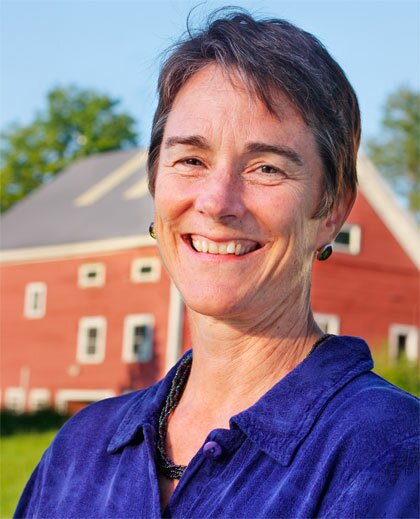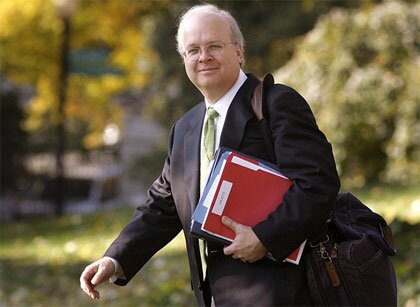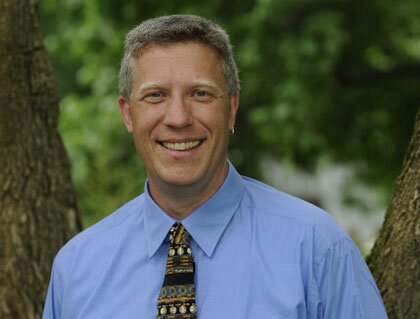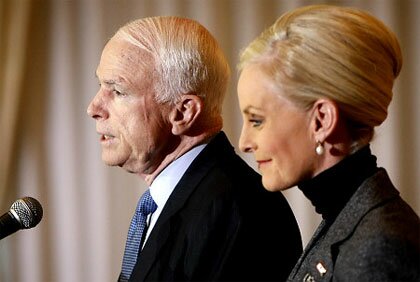THE EXPANSIVE VISION OF GAYE SYMINGTON:
VDB Engages, Debriefs, and Generally Talks Turkey With the Democratic Candidate for Governor
Not sure why it is exactly, but my interviews have a habit of coinciding with strange medical issues as regards the interviewee. When I interviewed Peter Welch in 2005, he had narrowly escaped death: he’d cut his thumb on a soda can, then badly infected the wound stacking wood.

The upshot was that we did the interview with his thumb wrapped in a knob of thick gauze, which gave his hand gestures — especially when calling for the firing of Donald Rumsfeld — a special sort of impact.
When I walked into Gaye Symington’s campaign office — one of many in the Vermont Democratic Party’s coordinated campaign headquarters — she was seated with her back to the window, and watching me with wide eyes. Really wide eyes.
Wide enough to be unsettling, in fact, until the Speaker of the House shook my hand and told me that she’d just had her pupils dilated during an appointment with her optometrist. Like Welch, Symington was a trouper and did the entire hour-long interview anyway. But the dilated pupils did lend her face a certain drama throughout — like some inescapable symbol of what George H. W. Bush used to call “the vision thing.”
We talked about a string of serious issues, from crime and punishment to nuclear waste, but throughout Symington maintained an easy poise, and a very calm demeanor. In all of the pieces I’ve read on the candidate, none mention her sense of humor, that I remember. But she laughs easily, and with gusto.
Of course, that sense of humor may be a requirement and not a choice, in a three-way race that threatens to split the anti-Douglas vote. But either way, it helps.
*****
VDB: If I could, I’d like to go straight to today’s headline in the Rutland Herald (“Dubie Begins Push For Longer Sentences”), a nice Louis Porter story but to my mind an utterly predictable development in the race. In fact, I did a post this morning, where I went back to my interview with Anthony Pollina in March, and back then — without knowing of course that Brooke Bennett would be horribly, brutally murdered — I talked to Pollina about the possibility of something just like this being used in the campaign.
I pointed out that Jim Douglas always runs against his Democratic or Progressive opposition by painting them as tax-and-spend liberals, and then he has one hot-button social issue. Last couple of times out, it’s been sexual predation and, as an offshoot of that, civil commitment.
And, honestly, Anthony Pollina’s answer to the question in March was not reassuring to those of us who are afraid that the race for Governor will be lost on issues like these. So what struck me in Porter’s article was that you use the phrase “counter-intuitive” to describe your own position on mandatory minimum sentences of, say, 25 years: you oppose these hefty minimum guidelines and argue that they’re actually productive of less security for the community.
So I’m wondering if that is in fact your position, and if so can you run that out for us. But then can you specifically address the other question: how do you deal with an opponent who is very skilled at invoking those sorts of fears, and in championing tough-sounding legislation as the solution?
Symington: Well, I agree with you this is predictable. For the last couple of weeks my stump speech has included a line saying, “You’re going to hear that I’m a tax and spend liberal, and you will probably also hear that I’m soft on crime, and communism.”
VDB: Were you serious about the communism part? Or was that a joke?
Symington Communications Director Michael Carrese: [Shouting from cubicle] That’s a joke!

Symington: [Laughing] Part of where I’m coming from is I’m actually trying to do some fact-checking around what Douglas has done in terms of implementing the law that we [the Legislature] put in place. But for me this whole issue boils down to being smart on crime, not just tough on crime. And that is where I come from. We took, in my first biennium as Speaker, we took a very careful approach and created the Sexual Violence Prevention Act. And it had a number of different aspects to it. We redid our sentencing, we focused on prevention issues, we focused on treatment issues, but largely redid our sentencing.
VDB: So it’s now in line with laws in other states, like Florida, for instance.
Symington: Basically it established what’s called an “indeterminate life sentence.” If you commit a crime like this, you’re going to be under the supervision of the Department of Corrections for a long time — your life. Even if you finish your sentence you will always be pulled back in if something goes wrong. There will always be the capacity to pull you back under more strict supervision if you violate the terms of your probation in any way at all, and not just by committing another crime.
The other part is — the important thing to realize is how hard it is to prove a crime of sexual violence. These are not crimes where someone is jumping out of the bushes at somebody, at a young girl. It’s inevitably — and horribly this story [of Brooke Bennett] follows this pattern — it’s someone who should be a trusted person in that young girl’s life. And you end up with one person’s word against another. A young girl’s word, a child’s word against a grown-up. And they’re crimes committed in private, and they’re very, very hard to prove.
If someone is accused of sexual violence, and is facing a twenty-five year minimum sentence, they’re not going to accept a plea. They’re going to take it to court. And the fact is, the crimes are hard to prove and the perpetrators end up going free. No jail time, no registration on the Sex Offender Registry, no identification in the community, you know, nothing, scot-free. And that’s why the victims advocates and the prosecutors testified [in Legislative hearings] against long mandatory minimum sentences.
VDB: So, assuming that one of these offenders takes a plea, under the system that you passed and just described, what does their life look like then?
Symington: The one other aspect of it —
VDB: Yeah, sure.
Symington: — we also make it more likely that they will take a plea by establishing what are called Special Investigative Units. And Chittenden and Franklin Counties — this is where I’m trying to do some fact-checking — but Chittenden and Franklin Counties have had a lot of success with these Special Investigative Units.
And you have specially trained officers who know how to ask questions, who right from the bat work with the victim, work with the suspect, and their experience helps it lead to a plea, to a conviction. And that was also an important part of the Sexual Violence Prevention Act was expanding the Special Investigative Unit concept statewide.
And what I’m trying to understand now — I believe that the Douglas Administration has not appointed those investigators for the other counties. We’ve not gone that step. That’s what I’ve been told.
VDB: That’s interesting.
Symington: Now your question was what happens when somebody is convicted —
VDB: Right. So instead of shooting for the 25-year minimum with this suspect, as a policy goal, we’re shooting to get them to admit their crime and get them into the system. But once they’re in the system, what do their sentences generally look like?
Symington: There’s a presumed minimum of 10 years, a presumptive minimum of 10 years. That leaves some wiggle room —
VDB: For individual judges.
Symington: —but there’s a presumptive minimum of 10 years. There’s treatment. Now those who argue that these people cannot be treated, that hasn’t been totally — I mean, there are those who will commit crimes, clearly. But I believe that Vermont has a fairly decent track record around treatment. And then, the third aspect is that you leave the system, but you can always be pulled back in. And there’s the Sex Offender Registry.
VDB: Another place where Douglas has located what I think of as a hitch in left-wing orthodoxy is civil commitment. So Douglas’s proposal is to say: we will keep these people not just “in the system,” but physically in jail, past their stated sentences, if we determine that they’re still a risk. Does this legislation you’ve been describing close out the debatable need for civil commitment, in Douglas’s terms?
Symington: Yes. We basically worked — and I believe there was one last piece that Dick Sears and Bill Lippert and Brian Dubie agreed to at the beginning of this biennium — because basically we had come to the agreement that the problem was the folks who had already been convicted [before the Sexual Violence Prevention Act took effect] and were already in jail, because they had been convicted under the old laws. I believe there is basically this very tight leash aspect that we agreed to, that if somebody leaves prison without having completed their treatment, they can be brought back to the system on a hair trigger, if they violate any aspect of their probation.
VDB: But I guess the sticking point would be: are they let out of prison until such time as they violate some provision again?
Symington: [Nodding] Until they violate something.
VDB: Okay. Because if I understand Douglas’s position, he’s saying that in such a case he might not let them out at all. So is that —
Symington: I realize that’s what he’s implying. The interesting thing is that’s what he implied before, and then he didn’t put the money in the budget. I mean, this is very expensive. Because in order to justify it to people who believe in our constitutional rights, you have to prove that you’re actually providing treatment, that this is a mental health issue.
That’s the only way that it stands up in court, in the other states that have [civil commitment]. Very expensive. Take the same resources, and put them into Special Investigative Units, put them into the kind of supervision that really works. You’re going to get a lot more community safety for the dollar.
VDB: Now, you talked a lot about these Special Investigative Units just now, but they didn’t appear anywhere in what you said in the Herald article I mentioned. And it seems to me that they make a perfect answering sound bite to the one Dubie and Douglas are now using about Jessica’s Law. Because both of them speak to the issue, and the active aggressive enforcement of the law. The false frame is that it’s either 25-year minimums or nothing.
Symington: My tale is the timing, and I saw this coming and I sent some people to confirm for me where we stand on appointing these Special Unit investigators. And then this [the Bennett murder] all unfolds, and I’m not ready, you know, I’m still trying to understand where are we. Why is it that we haven’t moved on appointing those investigators, so that we can have that tool throughout the state when we’ve seen such success with it?
VDB: Okay. I just had to get that issue off my chest, because it was this morning’s news, and it’s really not this morning’s news, it’s news from every one of the last three elections. It’s the same story.
Symington: I agree with you. [Smiles] And it’s very frustrating.
VDB: If I could go back to the beginning of this cycle, for a minute. I was listening this morning to an interview you did with Bob Kinzel on Vermont Edition back in May. And he asked you what I think a lot of people in Vermont are asking themselves — about the three-way dynamic with Pollina, Douglas and yourself. And Bob Kinzel asked you why you’d get into the race when Pollina had been in so long, and had a campaign up and funded. And not to simplify it too much, but your answer revolved around giving voters “a real choice.”
And that struck me as the sort of answer that Anthony Pollina himself has always given in earlier races where a name Democrat had already staked out a claim. The choice idea has been the response of most Progressive candidates. So it seems as though, depending on who’s out first, the justification for having or not having three in the race switches back and forth between Democrats and Progressives.
What I hear from people, especially those who write me through my site, is that they’re very worried and a little demoralized, because they feel as though if they go out and knock on doors or send money, that it’s a doomed enterprise from the start. What are your thoughts on all of this now that you’ve been in the race for a couple of months?
Symington: I will answer your question, but I want to first say that when I entered the race, I certainly did the math around the race. I knew I was entering a three-way race; I never expected Anthony to leave the race. I wouldn’t ask him to leave the race any more than I’d ask Jim Douglas. I felt it was a winnable race. I’m not in this to carry the banner for the party, I’m in this to win the Governorship.
VDB: Yup.
Symington: I truly believe that I’ve got the ideas and the experience to bring to bear. Now that I’ve been in the race, I feel that even more strongly. I very much hear it from — you know, the race involves getting beyond the party faithful, getting beyond the base. It involves reaching out to Vermonters, who, you know, vaguely know who’s who and who’s making things happen, but aren’t living and breathing this, in terms of reading news articles, or blogs or everything else.
VDB: Now would those Vermonters you need to reach be people who have in the past tended to pull the lever for Republicans or for Progressives? Or Independents?
Symington: They would be Independents. I think most Vermonters don’t think of themselves in terms of Republican or Democrat or Progressive, whatever. I think they are looking at people, and they don’t vote straight tickets. I definitely feel a sense of — that here is someone who is going to bring some energy and has a record of getting things done. And bringing people together in order to get things done.
And I know that aspect of me is frustrating to people who are one flavor of Kool-Aid drinker or another, but for most Vermonters I think they really appreciate that. I listen and pull people together. And it’s reinforced that original decision for me.
VDB: Related question, and again one that Bob Kinzel asked you first, but I wanted to follow up in a certain way. He asked you about the eventuality where none of the three candidates in the race get to 50%, and the decision goes to the Legislature. You would seem to have a big advantage in that case: it’s a large Democratic caucus, that you were leading until recently, and many of those people are personally loyal to you. I noticed that you answered Kinzel by saying you’d leave it up to the Legislature to decide.
Now, Jim Douglas is obviously nobody’s fool, and I think he will try his damndest to make an issue of that — the fact that you have not taken an absolute pledge to honor the will of the people, as his phrasing goes. My question is this: can you see yourself taking that mild heat, in a debate or on the trail, all the way to Election Day? Or do you think you might change your mind and take that pledge at some point?
Symington: [Takes a moment to think] My focus is on getting 50% plus one votes. That’s where I’m focusing. It is — I will not be a member of the Legislature in January. It is up to the Legislature.
VDB: Yup.
Symington: [Clears throat] I’m basically saying what Jim Douglas said in 2002, “This provision is in our Constitution, and I’ll leave it to the Legislature.” I am not a member of the Legislature in January, and my focus is on getting 50% plus one votes.
VDB: Okay. Because I’m remembering a debate with Brian Dubie and Matt Dunne, and there was similar talk that Dunne might be able to hold Dubie below 50% and that if he got within a few points, the Legislature might see their way clear to put him in the Lieutenant Governor’s office. But Dunne wound up taking that pledge in the debate. So it seems to me that it will become a campaign issue, if Douglas frames it as a sort of Legislative coup.
Symington: He needs to make that case against the Legislature. My job does not relate to the Legislature. I think it’d be very hard for the Legislature to undo, you know, to reverse — there’s so many different scenarios that it will depend upon. And that’s why I’m encouraging people to vote for me, and not take this whole chance. The bottom line is that Vermont is hurt by Jim Douglas’s lack of leadership. And I’m bringing ideas, and I’m bringing a track record of getting things done.
VDB: Going forward, what do you think your real pull-no-punches, hard-hitting issues are going to be against Douglas, if you had to list them one two three?
Symington: He claims to be Jim Equals Jobs. We have the lowest job growth in all of New England. The jobs that are growing are low-wage jobs. Nine out of ten of the jobs we are getting are low-wage jobs. Nurses are the exception. The gap between high and low income-earning families is growing faster than any state in the country, other than Connecticut. And Governor Douglas turns around and says, “It’s George Bush’s fault, it’s the Legislature’s fault.”
We have a lake. If we’re going to be called the greenest state, pretty soon it’s going to be because of the algae in that lake. We are not enforcing, we are not preventing run-off. We’re shifting those costs onto taxpayers. We’ve spent $85 million bucks and we don’t even know what we’re measuring, as a state, in terms of measuring our progress and knowing where to spend our dollars most effectively. [Voice rising now] We’ve been told that over and over and over again, and yet we just pour money into the lake.
Energy. We have no plan for our energy future, either on thermal energy, or electric energy. We have a Governor who’s passed up opportunities on the Connecticut River dams, we have a Governor who constantly turns and protects the interests of a Louisiana-based corporation [Entergy] that has made millions of dollars of profits by operating a plant in Windham County [Vermont Yankee]. He’s saying it’s too much to ask them to live up to their original promise to fully fund that decommissioning fund? And as a result, we’re going to pay — it’s okay to just shift $500 million dollars worth of expenses onto Vermont taxpayers.
VDB: Conservatively. These estimates on clean-up, for all of these sorts of plants, are always wildly understated.
Symington: We are being consciously backed up against a wall of impossible choices. Vermonters perceive themselves to have no choice but to sign on for another 40 years of that plant. So those are my three. [Ticking them off] Lake, energy and jobs. I only did three. [Hooks a thumb at campaign manager Jill Krowinski] They always say I go on too long, but I only did three.
VDB: Well, that last one, the energy piece — particularly with regard to Entergy — I wanted to ask you about anyway. To go back to the electoral strategy problem we began with, the way it usually works is this: Douglas is the first to put up an aggressive ad, framing the race, and then the Democrat responds. Given that Jim Douglas vetoed the decommissioning fund bill [requiring Entergy to show financial wherewithal to return the Yankee site to “greenfield” status], I’m wondering if you’ll be making that a real campaign push, and might you do some advertising about that single issue?
Symington: The first focal point for me, in terms of putting out a specific platform, is in the world of both thermal and electric energy. Whether it’s a paid advertisement — in the summer when people are focused on the Fourth of July, and basketball camps and juggling their jobs and their kids — I don’t think that’s the wisest time to be spending money on advertising. But I will be putting emphasis on that aspect of what I think about energy.

VDB: To stay with Yankee for just a minute, do you believe the notion that decommissioning is not a credible option because we have no alternative to that energy, and where exactly do you stand on decommissioning as an actual prospect?
Symington: I believe that that is the scenario that the current Governor is painting, for sure. Every piece of energy policy that they put out points in that direction. You know, this energy plan that he’s put out, it points exactly in that direction [Gets out of chair, still talking, and begins to sift through a plastic file cube sitting on floor behind her], that it’s a low-carbon footprint energy, that it would be twice as expensive without Yankee, etc. [Turns to look at me, as she rifles files] I know this is obnoxious, and I promise I won’t do it again. [Hauls out folder and brings it back to desk] But what I find unbelievable is that this is the only reference in this whole document to the health and safety concerns of the nuclear waste [points to a single, one-line footnote].
VDB: Now this would be a footnote on page —
Symington: It’s a one-line footnote on page 69. This is a page in the report that lists the advantages and disadvantages of nuclear, and in a footnote to “Other Health and Safety Concerns,” the footnote reads, “Includes concerns associated with radiation, groundwater contamination (for example, tritium), and emergency preparedness.”
VDB: Now this is a 250-page energy plan —
Symington: Jim Douglas’s draft energy plan.
VDB: — and so the safety of the waste is one footnote.
Symington: [Sitting back down] Now, there are legitimate concerns about the price of power, and the predictability of power. What I hear from the business community is that it’s as much about the predictability as it is about the price. These swings are devastating to their ability to match their pricing with what their inherent costs are, especially for heavy users, like the ski areas, and IBM and other manufacturers.
You know, when you paint this picture, when you set out a plan that sets out in this direction [where nuclear is an indispensable component] then you’re building a self-fulfilling prophecy. Because we haven’t built the smart grid that we need.
The other part of your question was, what is my plan, how would I approach this. For me it all comes down to the need for a real energy plan. On Vermont Yankee, what I’m seeing — and I’m often misheard on this, so I’m going to say it carefully — is one, we need to know what is the status of this plant. We need a legitimate, outside, independent look at this plant’s reliability and safety. And that’s why we set up the [Comprehensive Vertical] Audit. And that’s why I was pretty careful about who I chose as my appointee to the Commission, to the oversight panel.
VDB: Now Douglas has come out and criticized both your appointee [Peter Bradford] and Peter Shumlin’s [Arnie Gundersen] —
Symington: Sure, in a very predictable way, and you could make the same criticism in return for his appointee.
VDB: Do you think this is an attempt to pre-frame a dismissal of the Commission’s eventual findings?
Symington: Sure. But I believe that someone who sat on the Nuclear Regulatory Commission over a period of time when 20 nuclear power plants were approved should have some level of credibility. Basically, I’m hearing criticism from the Windham County Coalition, you know, for that very reason. “You appointed somebody who approved nuclear power plants in the past?” I’m getting it from both sides, in terms of that appointee. But I spoke with him, and I asked a lot of people about their experiences working with Peter Bradford.
So, one, independent assessment. Two, if it’s not reliable, if it’s not safe, shut it down now [finger tapping table to emphasize each word]. If it is safe, put together a real plan for getting off that power within the next 5 to 10 years. Once again [Chuckling] I get screamed at by the Left and the Right, or by Windham County and Chittenden County, depending on how you want to divide the world, for both. “It can’t be only 10 years!” or “What are you talking about having it run for 10 more years!” But I’m recognizing the fact that we are backed up against a wall, and we have to be real about getting off this power.
The aspect of it, though, is this: unless we start to let the market price work [for power], we’re never going to get off our over-reliance on Vermont Yankee. So what I’m working through is — and I have conversations with people ahead of me — what we need to do is take the Vermont Yankee price, you know we negotiate a very good price, but have some of that go towards the Clean Energy Development Fund. We’ve got to get serious about building our capacity in other areas, in a smart grid, in wind energy, and energy efficiency.
VDB: You’re saying that if Vermonters put you in office, you’ll be on a timeline to shut the plant down in 5 to 10 years, if not sooner.
Symington: Yes. Well, it depends — if it’s judged to be not safe, then you shut it down now. That’s the part that Windham County needs to hear me say.
VDB: One last area to cover. You were an early supporter of Hillary Clinton, and now you’re an out-front supporter of Barack Obama. Your website makes that clear.
Symington: I was an early supporter of both, but I endorsed Hillary.
VDB: Right. At this point, what’s your take on what’s come to be called the “Unity Question” in the Democratic Party, as regards Hillary supporters and Obama supporters? Do you think Vermonters specifically and maybe Americans generally are making that move to come together, at about the right pace?

Symington: That’s my experience. I mean, it was no trouble for me. I had a very hard time making a choice originally. I find Barack Obama totally inspiring, and I found it amusing to hear all the appreciation for his approach and his language around bringing people together and finding common ground, when that was an aspect of my leadership style that I’ve gotten so much grief over [Laughing] from those same people who found him so attractive for those same reasons [Stops to laugh it out].
VDB: [Laughing too] Any names you want to throw out?
Symington: [Stops laughing] Um, no. I really went back and forth on who to support a number of times. But my experience is that people were really thrilled, and we were really thrilled, to have two such wonderful candidates. And now people are very much coming together around Barack Obama. And I think there’ll be an interesting shift as his message shifts to one for the general election, as opposed to the primary. I already sense that to some extent.
But I think people are so relieved, just to have someone with such a sense of vision, bringing people together, knowing where we’re going.
VDB: And maybe I’m wrong, but it seems to me that one of your own biggest hopes in this three-way election has to be that the Obama campaign increases turn-out to historical levels, to the point where it boosts you, the Democrat in this race, past Jim Douglas in a way that other Democrats haven’t been able to manage.
Symington: Yeah, I don’t think there’s any way of predicting how that works. I certainly think it isn’t hurting my candidacy. There’s just a ton of energy coming into this election cycle, and I think there’s a lot less excitement over the same-old same-old. And the other aspect is — there are a number of people who have said to me, in all different ways, “Great, I get to vote for both Obama and a woman leader.”
VDB: You.
Symington: [Nodding] Yes.
VDB: I hadn’t quite thought of it in those terms, but that’s exactly right.
Symington: For people who are letting go of what they saw, the inspiration they felt in having a woman President, they have the option of voting for an inspiring guberna —[Catches herself] Presidential candidate in Barack Obama and a woman leader with experience as Governor.
VDB: An inspiring woman leader for Governor. [Pause] You can’t say that about yourself, can you?
Symington: I think I came pretty close, Philip.
















